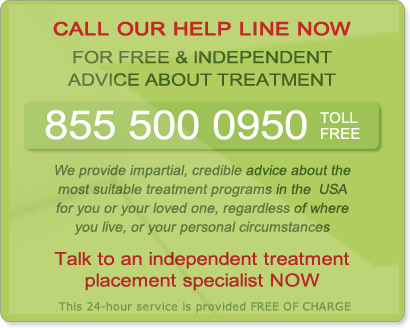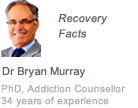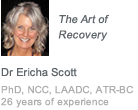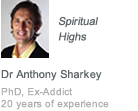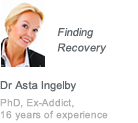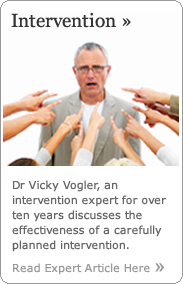Young People and Drugs
Young people and drugs, yes they sort of sit together. Young people like to experiment, to push the boundaries. In our modern world drugs can be found on almost every street, it is easy for anyone to buy whatever they want. Peer pressure, experimenting with new and taboo behavior, a need to be different from the parental generation – put everything together with easy availability, prices that can be managed, the rebellious nature of youth and the result is likely to be that most youngsters will, at some point, purchase and try drugs. For most that is all that will happen. They will try a few different drugs once or twice, and then move on, no serious damage done. Sadly though, for others it will not be such a benign experience. For those that are fascinated by the high, or want to recapture the feelings they got from the first few drug adventures the result can be a swift descent into drug addiction.
The damage drug abuse can do to a mature body is one thing, but for young people who are still growing physically and mentally it is worse. Drug abuse at a young age can alter brain functions, disturb cellular division and have profound effects that may not be visible for many years.
Easy To Get and Easy To Use
Getting the most up-to-date information about any kind of drug is very easy today. It takes seconds to type the name of a drug into a search engine and find a long list of links. Some pages give information about the drug, where it comes from and what it is used for. Many others are forums and blogs from those who have tried a particular drug and want to share their experience with as many people as they can. Young people looking on the web are more likely to be interested in their peers’ experiences than to want hard information about the negative aspects of drug abuse.
Friends at school or college already using drugs may offer to share a club or party drug so that everyone can ‘enjoy’ themselves together. Every high school, college and university has dealers who make sure that all the students know what they are prepared to supply. Getting drugs does not even require a young person to go outside their everyday lives to find whatever they want. Once the drug has been purchased or given to try then taking it is not a big deal. A couple of lessons missed, or an evening spent with friends or at a party – the opportunities are endless.
Drugs have been part of cultures and civilizations for thousands of years. Shaman and priests were once the only people to use mind-expanding substances, and the only ones who knew how to collect and prepare the drugs. Today celebrities, music and film stars are open about their drug use and abuse. Even fictional characters are portrayed as drug addicts; Sherlock Holmes is a famous example. Of course many responsible adults talk about the negative aspects to their drug abuse, but often this falls on deaf ears. For young people the idea of drug use is somehow cool and the dangers do not concern them – it will never happen to me.
There are also a great variety of drugs available: many new medicines have been discovered, which are legally sold in pharmacies (often without a prescription), so a young person does not need to go great lengths to get something to try with their friends. Sometimes they just need to rummage through the medicine cabinet and bingo – a little bottle of tranquilizers or something similar is not going to be missed.
Young People Are Vulnerable
Youth has the joy of being carefree – little of the baggage and detritus, responsibilities and obligations of adults’ impact on the young. Youth believes itself to be invulnerable and invincible. Nothing can do that much damage, a young body heals quickly and a young mind recovers easily. To young people everything looks easy, any mistakes can be repaired; this attitude, (completely normal and healthy), can make young people drastically underestimate the risks they run when they experiment with drugs.
Not all young people are lucky enough to be this carefree. Many live in dysfunctional or broken families, others have the weight of caring for a disabled or sick parent. Some unlucky adolescents may have been abused, or be deeply unhappy with themselves and feel worthless. These youngsters are at even more risk of drug addiction as they seek release from the traumas, stresses and strains of their lives.
Peer pressure, the need to conform and be the same as friends is another contributory factor. A young person who is strong enough to stay out of the pack and be different can also be lonely and isolated.
Being young and growing up is not easy. Today we expect so much of our young people, we demand that they achieve and do well. The adult world pressures the young more now than ever before.
So at every turn there are understandable reasons for young people to try drugs, for release, for fun, for sheer devilment. The point is that they need to understand the risks and dangers of what they are doing, before they start. Educating and explaining about drug use, drug abuse and drug addiction is vital. Make sure that our young people get proper information about the drugs that are so easy for them to get, rather than rely on what those with a different agenda have in mind.
The Effect of Drugs on an Immature Body and Mind
Drug abuse can cause devastating damage to any human body, drug addicts have damaged heart, respiratory and renal systems as well as a plethora of other residual damage that does not fully repair, no matter how long sustained recovery is maintained. Young, immature or adolescent people are not quite fully formed; there are still some important processes of growth and development active. Drug abuse can interfere with the production and secretion of hormones, slow down the growth of bones and muscles and prevent some organs completing development.
It goes without saying that carelessness is quite common among young people, so overdosing by youngsters is not uncommon. When they mix drug abuse and alcohol the combination can be lethal.
Young people are not rich; generally they do not have a large income or many resources. If a young person develops a drug addiction they are likely to resort to desperate acts very early on when they are trying to find enough cash to fund their addiction. Robbery, mugging, small time dealing, shoplifting, prescription forging and a variety of other crimes are common.
A young person will justify their actions throughout their addiction. It is because nobody understands. They can afford it. They are insured. Of course it is the addiction that is telling them that what they are doing is alright, deep down they recognize what is happening to them, but they are powerless to reverse the situation.
Young people may run away from home and family life because they have an addiction. Sometimes, parents will force them away to try and protect other children in the family. Out on their own their situation can only get worse and they will also be vulnerable to predators who will exploit them further.
The Challenge of Drug Addiction Recovery for Young People
Recovering from drug addiction is never easy. It is similar to having a chronic disease: once in recovery an addict must pay attention to how they live, what they eat, who they associate with, what medication is taken when it is needed. There are myriad little details that an addict in recovery needs to attend to in order to stay clean. For an adult with some life experience this is difficult enough, for someone young who has limited experience, (and a lot of that is the experience of addiction), the task is even harder.
On the positive side, a young addict has greater healing and regenerative ability. Physically a young body will recuperate from the ravages of drug addiction more easily than an older body can. Mentally and emotionally the scars left by the life they led during drug addiction are likely to affect young people more deeply in some ways, recovery and understanding, the ability to forgive themselves and the maturity to accept and admit the addiction is far more difficult for an inexperienced youth.
Detox and a residential rehab program with proper support and appropriate counseling and therapies are the only way a young person might be truly successful in attaining recovery. Following rehab a continued program of support and counseling from expert professionals, with the forgiveness and understanding of family and friends will make a difference to the addict in recovery staying clean and rebuilding their lives.


